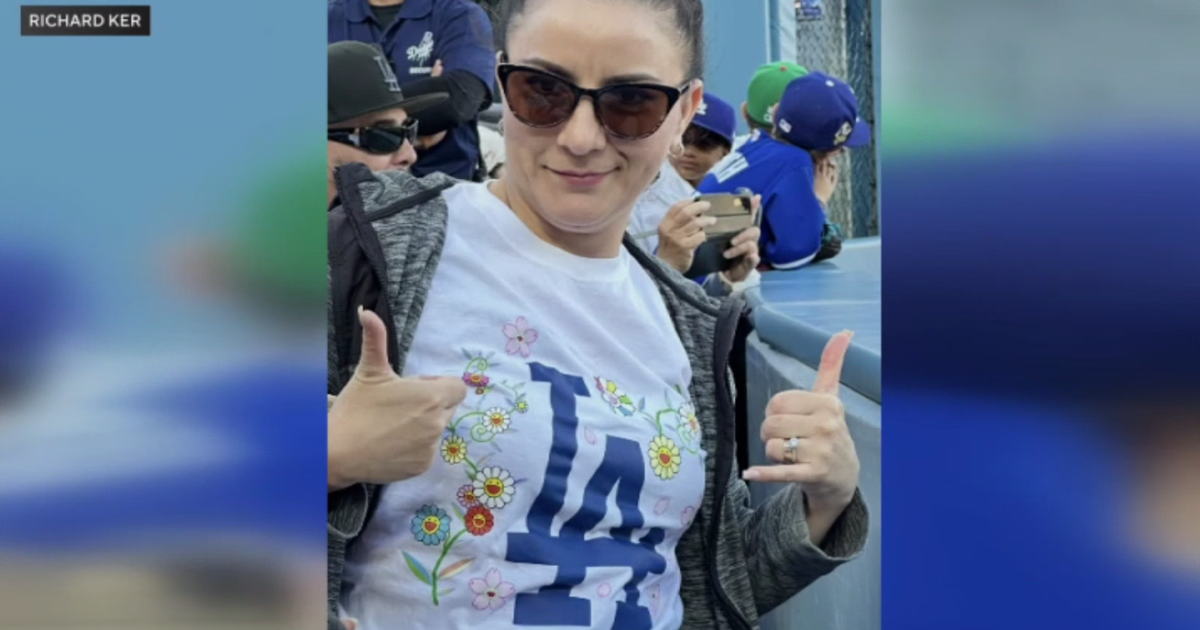Transcript: Jonathan Turley on "Face the Nation," May 6, 2018
President Trump has said that he was eager to talk with Special Counsel Robert Mueller, who is investigating Russian meddling in the 2016 election, during a week of legal twists and turns. Last week, questions that Mueller wants to ask Mr. Trump were leaked to the New York Times.
Meanwhile, White House attorney Ty Cobb announced his departure as another, Emmet Flood, came on board.
The following is a transcript of the interview with George Washington University constitutional law professor Jonathan Turley that aired Sunday, May 6, 2018, on "Face the Nation."
MARGARET BRENNAN: We are joined on set by Jonathan Turley. He is a constitutional law professor at George Washington University. Want to wish you a Happy Birthday.
JONATHAN TURLEY: Thank you Margaret!
BRENNAN: Thank you for spending it. I understand that two of our last guests were also students of yours at some point?
TURLEY: That's right. Both Kellyanne and Michael. I've always said you don't have to go outside GW for national news and this just proves it.
BRENNAN: Well let's- let's look at some of the work they've done here. You have said that in many ways the president's that- that these question about Stormy Daniels could in fact lay out the case for Robert Mueller an obstruction of justice that we have yet to see when it comes to the main legal case he is chasing which is regarding Russian election meddling. Explain that.
TURLEY: Well the danger here is that the Stormy Daniels matter could supply the obstruction case that has so far evaded Robert Mueller. I don't think the obstruction case or collusion case that Mueller has been pursuing has really materialized as far as we can see into a serious threat against the president, but an obstruction case would be easier with Stormy Daniels even though Giuliani says that this is a weak case under Federal Election Laws. The fact is that it is it is possible to violate federal election laws whether it's a loan or a gift. And that's the threat is not the actual crime because this is something that is not normally charged criminally. What Giuliani is referring to is the irrespective test under the FEC that if there was another reason for the payment it's not a violation of the FEC. People like White House counsel Don McGahn understand that because he was on the FEC and actually worked to the lower the standards for the election material. The danger is there's an investigation in the field out of New York. So if the president is accused --
BRENNAN: That's the case involving Michael Cohen.
TURLEY: That's right. And that search warrant specifically referred to this matter. So if the president is accused of influencing witnesses or withholding documents encouraging people to give false information. All of that would be an easier obstruction case because you don't have all of the use of presidential authority that you have for example with firing James Comey. That's tough because he's using an inherent power that falls away with Stormy Daniels. It is possible that a porn star could take down a president if the president is not cautious.
BRENNAN: That's quite something for I think many viewers to get their head around here.
But Rudy Giuliani said this morning that the president's legal team would not have to comply with the subpoena and they continue to argue that a sitting president cannot be indicted. Is that accurate legal analysis?
TURLEY: Well he doesn't have to comply with the subpoena any more than anyone else does he just has to be willing to pay the consequences. The fact is the law in this area generally favors Mueller, if he wants to fight the subpoena he'll be using the same arguments used by Richard Nixon and Bill Clinton. Those did not turn out well. So Mueller likely would prevail on the issue of forcing him into a subpoena. I happen to believe that the president can be indicted while in office. I don't believe there's a strong constitutional argument that people have put forward that the president is somehow immune. What bothers me is that the framers talked about a great deal of their concern of giving too much power to the president. There's nary a mention in the convention as to this sweeping immunity that people are talking about. These are not the people to just have an implied sweeping immunity.
BRENNAN: Would you just button up for our viewers. Kellyanne Conway mentioned this judge in the Eastern District of Virginia who has accused Robert Muller of overreach. How did you understand these comments in the past few days because the White House thinks that it strengthens their argument that all of this is a witch hunt.
TURLEY: Well I think that the White House has a good point and a not so good point on this. First of all Judge Ellis's comments really surprised many people in the bar. He was really talking about motivation instead of the issue of the mandate. And usually judges don't get into that. The fact is this mandate is largely defined by Rosenstein, and Rosenstein approved these- these- these counts. Where they have a good argument, is I see no principled reason why Rosenstein gave the Cohen case to New York, but approved the Manafort case. Except that it made political sense. I think it was strategic. There's no reason legally why those two cases were treated so differently.
BRENNAN: Professor, thank you for joining us here today. And happy birthday. We'll be back in one minute.



